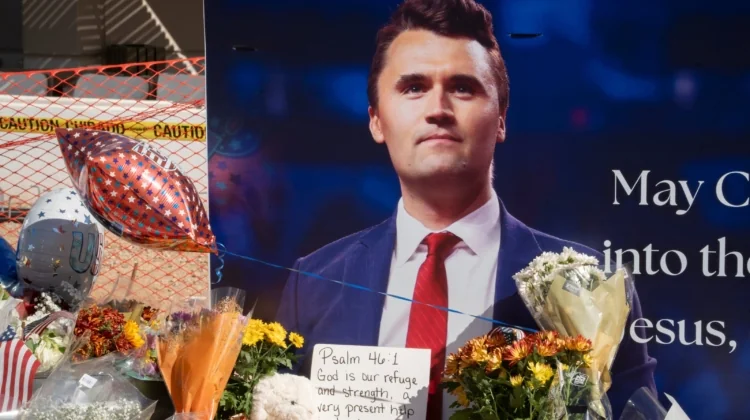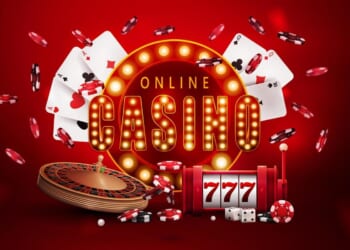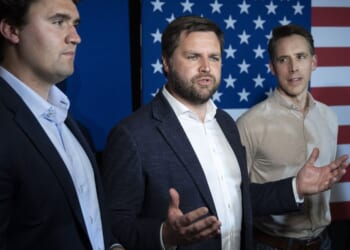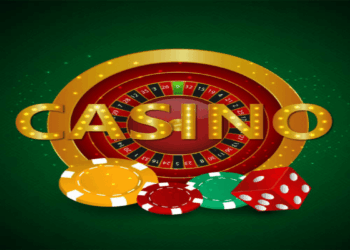
[Order Michael Finch’s new book, A Time to Stand: HERE. Prof. Jason Hill calls it “an aesthetic and political tour de force.”]
During the first few years after 9/11, I commemorated the anniversaries of that terrible day by re-watching news reports about the attacks and their aftermath. On a half dozen or so of these anniversaries, I published pieces in which I reflected on the meaning of 9/11 five, ten, or however many years later. Never did I think that I might spend the 24th anniversary of 9/11 watching podcasts about the assassination, the day before, of a young man who was all of seven years old when Al-Qaeda struck the Twin Towers and Pentagon but who had since become a major figure on the American political scene.
After 9/11, we were told that Al-Qaeda had attacked America because it hated our freedoms. That wasn’t the entire truth – in reality, the attacks were acts of jihad, inspired by the key Islamic tenet that it’s incumbent upon true believers to fight the infidels and bring their lands into the Islamic fold. But, yes, part of what made America an infidel land was its devotion to free speech – a concept that is anathema to Islam, which regards any deviation from orthodox Muslim belief as intolerable heresy.
The killer of Charlie Kirk, and the countless people around the world who cheered his murder, share that Islamic contempt for the free exchange of ideas. At the time of 9/11, most Americans on both sides of the aisle would have said that they supported free expression. But during the years that followed, a dark change took place. The poisonous far-left attitudes that had been fed to college students for years broke out into the society at large. Like the Al-Qaeda terrorists, many people on the left became prisoners of a hardened, hate-driven, undemocratic ideology that compelled them to prize raw power over anything else. Democratic Party rhetoric about Republicans became more extreme, with the labels “Hitler” and “Nazi” being thrown around more liberally than ever. Americans whose opinions would have been considered centrist and commonsensical only a few years earlier were now ruthlessly demonized. As a result, many of us who dissent from leftist orthodoxy found ourselves cut off by friends and relatives who 20 years ago didn’t have a political thought in their heads but who had now been convinced by the media that our views were abhorrent.
Increasingly, reasonable conservative opinions were excluded from the mainstream news media. Major publishing houses ceased putting out books that didn’t toe the leftist line. Cancel culture thrived. And it was worst of all at our institutions of higher education. Professors who dared to challenge leftist orthodoxy, if only in the most modest and respectful manner, were savaged by their students and punished by pusillanimous administrators. Irreverent stand-up comics who had once been hugely popular on the campus circuit walked away from it because leftist students now viewed them as fascist. Conservative speakers who had once been welcomed at universities were prevented from speaking by angry student mobs who blocked the doors to auditoriums and disrupted their speeches with loud, inane chants.
It was into this swamp that Charlie Kirk dared to wade. If America’s response to 9/11 – the invasions of Iraq and Afghanistan – proved disastrous, squandering blood and treasure in the naive expectation that semi-literate devotees of a savage religion would welcome Jeffersonian democracy, Charlie’s efforts turned out to be a smashing success. He greeted left-wing students with respect and courtesy, even if, in many cases, they were all but foaming at the mouth with hatred for him, having been informed that he was “divisive,” “controversial,” “polarizing,” a white supremacist, a misogynist, an instrument of evil. The wrong kind of speech, they had been instructed, was violence – and could justify actual violence.
Not a few of those students, however, ended up being disarmed by Charlie’s kindness and persuaded by his arguments. Then there were those students – who could be found even on the most far-left campuses – who didn’t buy into the campus orthodoxy, but who, before Charlie came along, didn’t dare to speak their minds. Charlie brought them out in droves. They discovered they weren’t alone in their dissent. Inspired by his courage, they began to challenge the orthodoxy.
And this was what made Charlie so dangerous to the left. He took his crusade to the campuses – Ground Zero for American leftism – and broke the left’s ideological hold on those places. During the Trump-Biden-Trump era, as the left disgraced itself repeatedly by spreading hoaxes, imposing lockdowns, calling January 6 an insurrection, and trying to destroy Trump by any means necessary, Charlie hung in there, arguing in a calm and steady voice for the founding values that had once united almost all Americans. Desperate for power but having no real arguments in its quiver, the left resorted increasingly to jihadist-style violence, supporting Antifa and BLM, encouraging unstable young people around the country to wreak havoc over the death of a Minneapolis thug, and telling prosperous white Baby Boomers, most of them probably former hippies who still got their news exclusively from network TV, CNN, and MSNBC, that Trump – who was in fact rescuing democracy from the tyrannical left – was a threat to democracy.
They opted for violence – for arson and vandalism and beatings and even murder – because, like the Al-Qaeda terrorists of 9/11, they had no other means of carrying out a successful conquest. They had no way of making an effective case for their ridiculous causes. In a debate with somebody like Charlie Kirk, they didn’t stand a chance. They stood, essentially, for a totalitarian ideology that had ravaged the Western world during the twentieth century. They embodied absurd contradictions, as illustrated by such groups as “Queers for Palestine.” They professed to be fiercely anti-gun, but again and again they resorted to using guns because they were intellectually impotent.
No wonder that Trump was the target of not one but two would-be assassins in the lead-up to the 2024 election. No wonder that, thanks in part to the fact that the left had simply gone too far in its relentless lying, its love of violence, and its support for transgender ideology, open borders, and other cockeyed causes – and thanks in part to a handful of people like Charlie who managed to swing the vote decisively by telling the simple truth to various demographic constituencies – Trump won that election in a landslide. No wonder that on the eve of the 24th anniversary of 9/11, one of the young people who had been brainwashed by the left’s malevolent post-9/11 propaganda has now felled Charlie Kirk. And no wonder that countless others around the planet – all of them equally brainwashed, drenched with hate, yet as convinced as any bloodthirsty jihadist that they stand for all things bright and beautiful – have cheered Charlie’s death, because in their view the greatest threat to their twisted faith is the idea of honest debate, of questioning one’s most fiercely held beliefs, of holding your own creed up to the light of truth.
No, the murder of Charlie Kirk wasn’t another 9/11. It was one murder, not three thousand. Charlie’s murderer didn’t take down two 1300-foot towers. But he took down a truly towering figure – a pillar of liberty, a man who in his fundamental decency, openness, and tolerance was emblematic of America at its best. In its own way, that one perfect shot to that golden throat, and the horrifying shower of blood that followed, was as shocking as the collapse of the World Trade Center. And like 9/11, his murder is a defining historical event – an atrocity, committed by the enemies of freedom in the name of a rigidly totalitarian dogma, whose long-term impact we can only begin to imagine.















